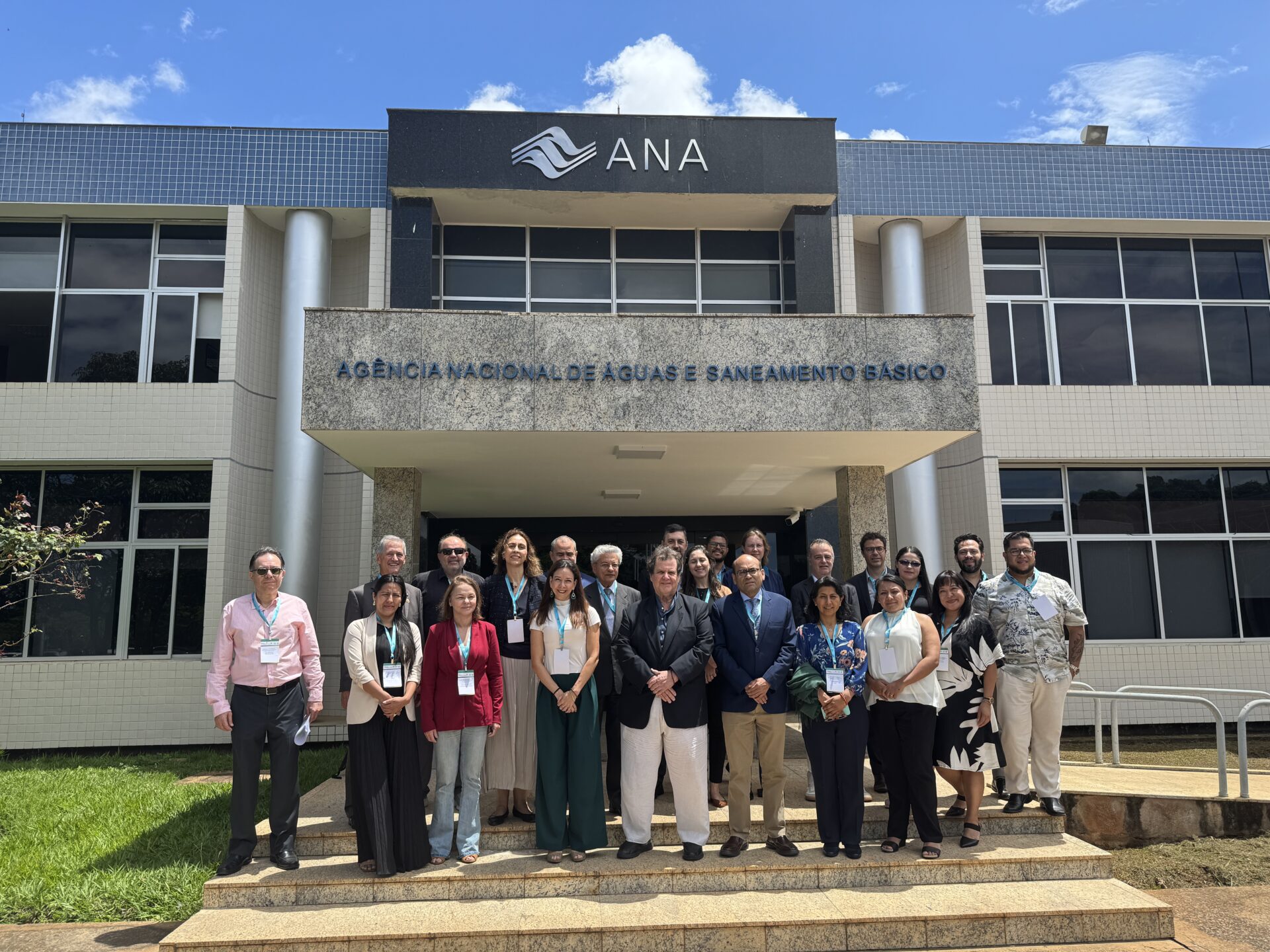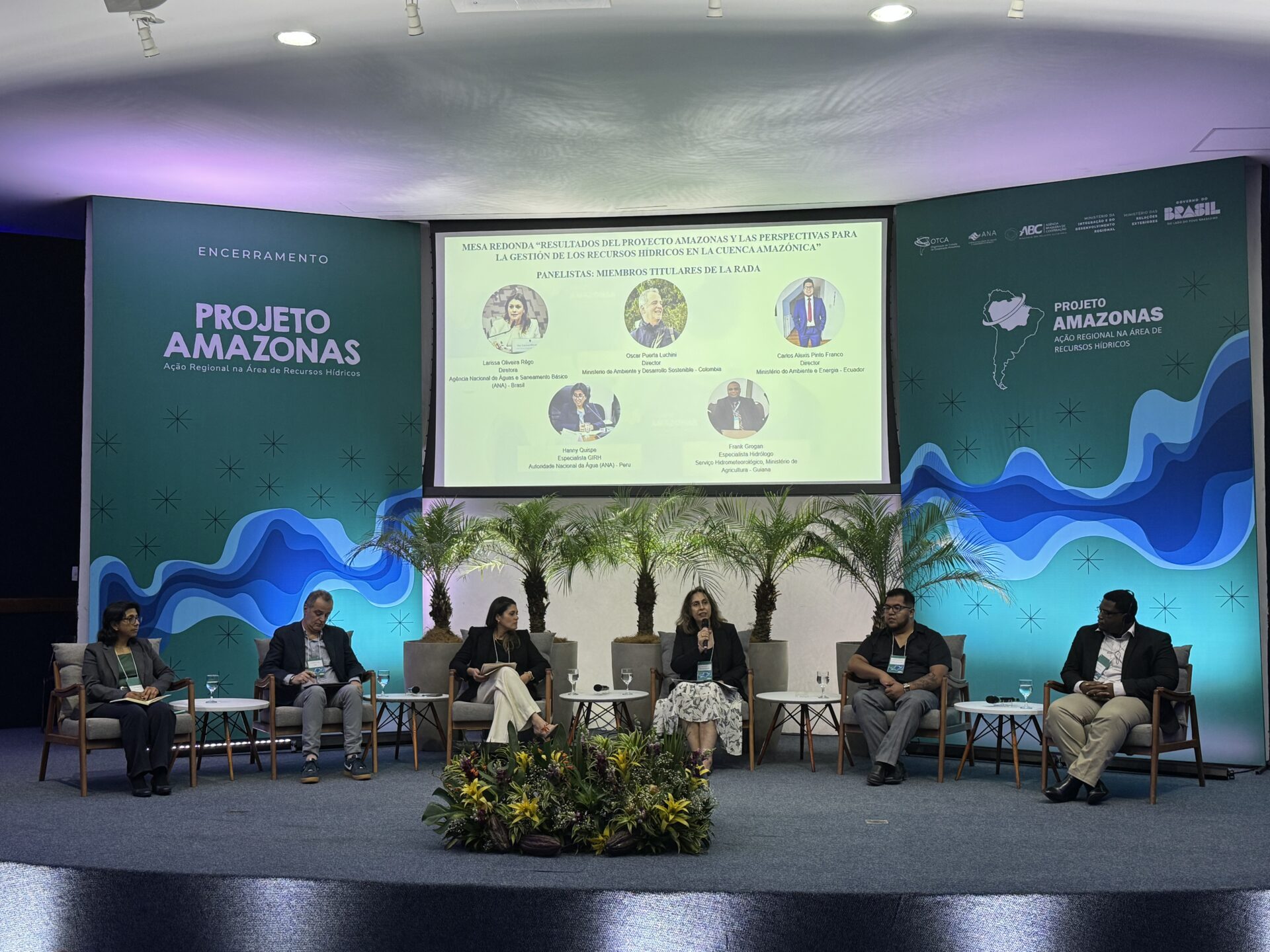On Thursday 18th, the Amazon Basin Project held a regional webinar on best practices in Integrated Water Resources Management (IWRM), generating learning to strengthen the information systems of Suriname and Guyana and, in this way, produce positive effects on the sustainable and shared management of the Amazon Basin. Technical cooperation and the dissemination of good practices between Amazonian countries is constantly articulated by the Amazon Cooperation Treaty Organization (ACTO) to ensure the sustainable and harmonious development of the region.
Participating in the webinar were representatives from Brazil’s National Water and Sanitation Agency (ANA), Colombia’s Ministry of Environment and Sustainable Development (Minambiente), Ecuador’s Ministry of Environment, Water and Ecological Transition (MAATE) and Peru’s National Water Authority (ANA).
In their presentations, the professionals focused on the themes of water governance, highlighting the functioning of the National Water Resources Information Systems and emphasizing the development of standardized protocols for collecting, storing and sharing data, as well as the participation of the community and other stakeholders and the implementation of training programs.
The ANA-Brazil’s Information Management Coordinator, Diana Cavalcanti, in presenting Brazil’s National Water Resources Information System (SNIRH), highlighted the Conjuntura report, a publication that annually updates national information on water use, quantity and quality and water security, collecting data from the 27 federal units.
According to Diana Cavalcanti, the ANA-Brazil is evolving year by year in the way it relates to the federation units in order to obtain up-to-date and secure information on the country’s water resources. “Today we have the participation of 100% of Brazilian states in sending data thanks to initiatives such as PROMANAGEMENT, the Program to Consolidate the National Pact for Water Management, which provides financial incentives to the federal units that achieve the defined management goals,” she said.
The Colombian representative, Lizbeth Gisella Ramírez, a professional in charge of the Amazon Macrobasin at the Ministry of Environment and Sustainable Development, stressed the importance of common language protocols for the flow of information that is collected from the territories to form part of the National Water Resources Information System. According to her, the Colombian SNIRH works with information on water quantity, quality, demand and climatic conditions.
The professionals representing MAATE emphasized the monitoring and evaluation system established in Ecuador, which makes it possible to measure the quality and impact of strategic and operational management, improving the effectiveness of planned actions. The country prioritizes environmental and water education, integrating scientific and ancestral knowledge.
In Peru, the eighth most water-intensive country in the world, the National Water Authority is the institution responsible for the governance and coordination of IWRM. In his presentation, Juan Pablo Mariluz, an expert from the SNIRH Directorate, highlighted the National Water Resources Observatory, a tool that gathers 400 million data points related to water resources and is accessed by 10 million people.
Representatives from the Ministry of Agriculture – Hydrometeorological Service of Guyana and the Ministry of Spatial Planning and the Environment of Suriname attended the presentations and interacted with the speakers with pertinent questions in order to succeed in developing their own IWRM systems and, based on them, strengthen the sustainable management of the Amazon Basin in cooperation with the other countries in the region.
Related news
Post
Virtual course presents the potential of cloud data analysis for Amazonian water resource management
5 de February de 2026
As part of the Amazonian Training Plan for Integrated Water Management, from the Amazonian Network of Water Authorities (RADA), the [...]
Post
17 de December de 2025
On December 11, the Amazon Basin Project (ACTA/UNEP/GEF) held a Seminar on the Exchange of Cooperation Experiences for the Management [...]
Post
16 de December de 2025
The roundtable discussion “Results of the Amazon Project and Prospects for Water Resource Management in the Amazon Basin” was held [...]




